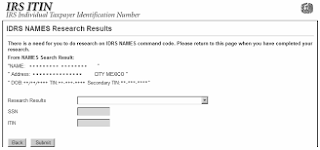According to DoJ, a grand jury in Detroit, Michigan, returned an indictment on October 10, 2019, charging Carl L. Collins III, a Michigan attorney, with tax evasion, filing two false tax returns and seven counts of willfully failing to file individual and corporate tax returns.
According to the indictment, Collins was a personal injury attorney with offices in Southfield, Michigan. Collins also allegedly owned two medical companies, MedCity Rehabilitation Services LLC and Alpha Living LLC, as well as a real estate company called First Third LLC.
The indictment charges that Collins filed a tax return for 2012 with the Internal Revenue Service (IRS), which failed to report approximately $550,000 in income.
Collins allegedly deposited most of this unreported income into an attorney trust account, which he failed to disclose to the Michigan State Bar Foundation and his tax return preparer.
- The indictment further alleges that Collins evaded personal income taxes for 2015 by depositing approximately $580,000 of income into his undisclosed attorney trust account and using much of the money to purchase real estate.
- The indictment also charges that, in 2017, Collins filed a false delinquent tax return for 2015.
- The indictment further alleges that Collins willfully failed to timely file tax returns for several years for both himself and his corporations.
Specifically, Collins failed to timely file his individual tax returns for 2013 through 2015, corporate income tax returns for Alpha Living LLC for 2013 through 2015, and corporate income tax returns for MedCity Rehabilitation Services LLC for 2013.
If convicted, Collins faces a maximum sentence of five (5) years in prison for the tax evasion count, three (3) years for each of the false return counts (6 yrs), and one (1 ) year for each of the failure to file counts (7yrs).
He also faces a period of supervised release, restitution, and monetary penalties.
An indictment merely alleges that crimes have been committed, and the defendant is presumed innocent unless and until proven guilty beyond a reasonable doubt.
Read more at: Tax Times blog


















